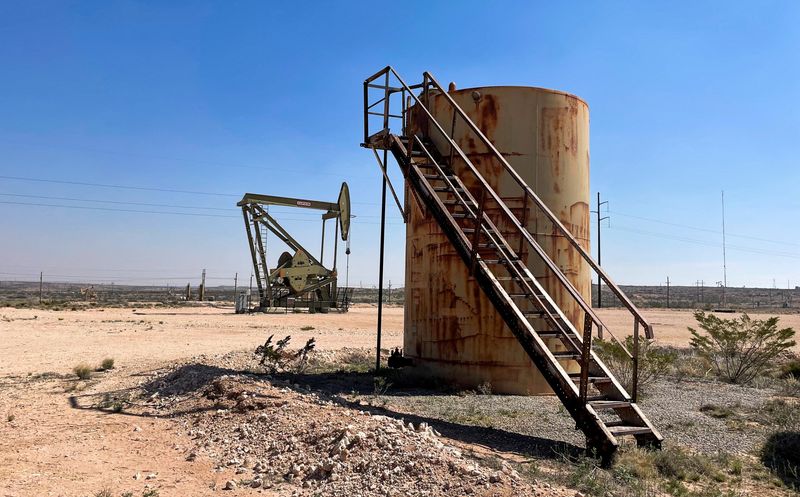
By Georgina McCartney
NEW YORK, (Reuters) – New Mexico, the second-largest oil-producing state in the U.S., is studying new restrictions on drilling that would hit up to 5.4% of its future crude output and result in billions of dollars in lost revenue, the state’s chief economist said this week in a report.
The study examined proposed setbacks – or restrictions on how close operators can drill to certain structures and environmental areas – which are intended to protect the public from oil and gas pollution.
The setbacks evaluated in the report would take effect in 2026 and result in more than a third of new wells not being put into production, according to Ismael Torres, chief economist at New Mexico’s Legislative Finance Committee.
That would amount to roughly 12.5 million barrels of oil output lost in the first year, and around 35 million barrels by the early 2030s.
Production value lost would peak at around $4.5 billion annually by 2034.
New Mexico houses portions of the prolific Permian shale field, which also crosses into Texas. The state was producing some 2.04 million barrels per day in July, according to the most recent data from the U.S. Energy Information Administration.
The report estimates more than half of the affected wells are on private land, a quarter of which are in Lea County, one of the fastest-growing oil-producing counties in the United States.
“A statewide setback would not accomplish increased mitigation of human health effects from oil and gas production, but it would be a detriment to the continued development of oil and gas resources and, ultimately, the State of New Mexico,” said Missi Currier, chief executive officer of the New Mexico Oil & Gas Association industry group.
The report was presented to the state’s Legislative Finance Committee on Tuesday and followed proposals from New Mexico’s 2024 legislative session.
The setbacks evaluated in the report would prevent operators from drilling within 2,250 feet (686 m) of most residential, education, health or correctional institutions, and halt drilling 650 feet from streams, lakes, ponds, wetlands, or irrigation infrastructure.
It would limit activity within 300 feet of all other surface water.

“The cost to human health and our natural resources far outweigh whatever revenue would be lost to the state,” said Charlie Barrett, a New Mexico environmental advocate and thermographer at the environmental group Earthworks.
“Setbacks are critical to protecting communities, schools and businesses,” he added.
This post is originally published on INVESTING.





